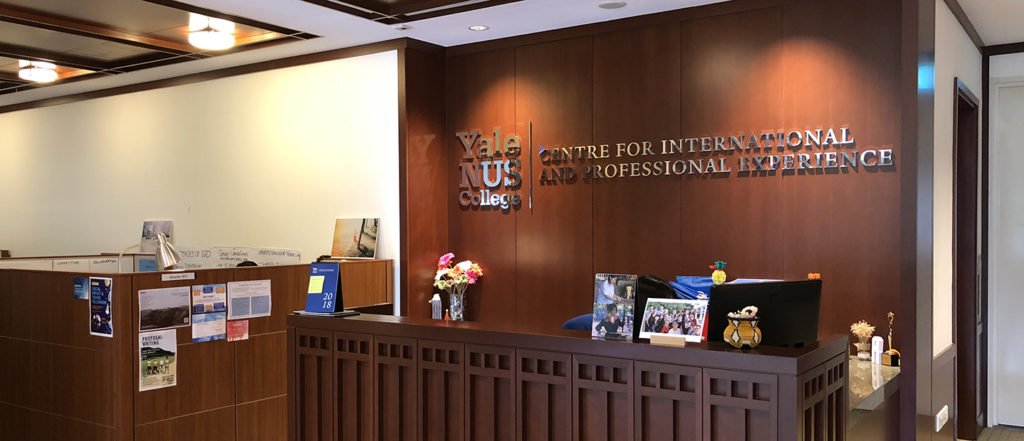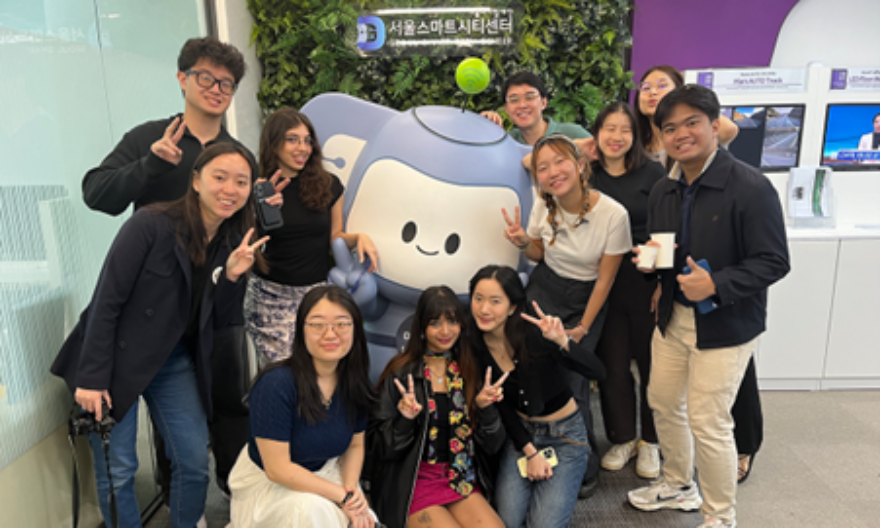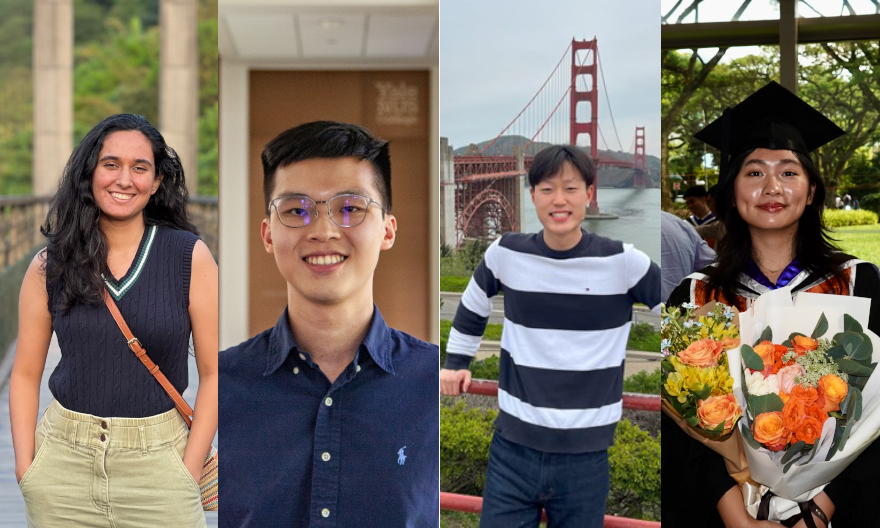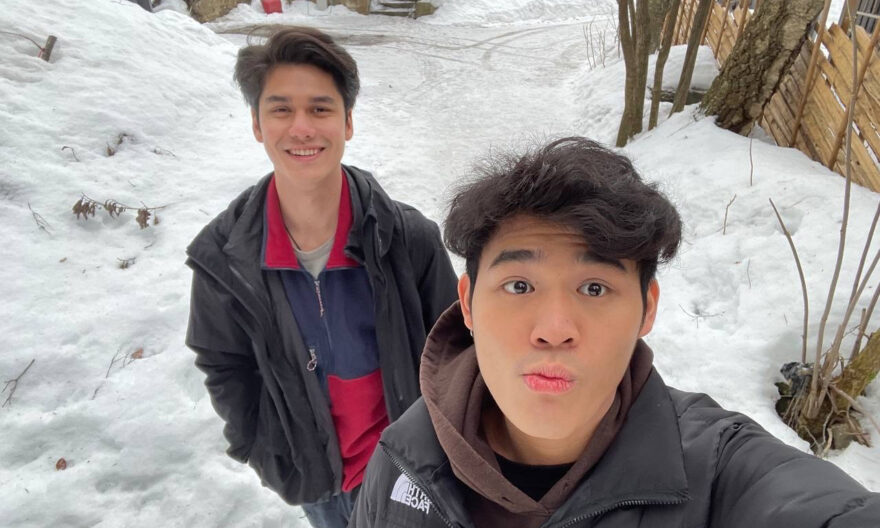Professional development programmes to prepare students for the working world
 Image by Yale-NUS College.
Image by Yale-NUS College.
At Yale-NUS College, a team of dedicated staff works closely with students on their professional and personal development. Known as the Centre for International & Professional Experience (CIPE), the office launched two professional development programmes over the past year.
The Professional Development Lunch Series aims to equip students with soft skills such as time and task management, writing for the workplace, professional communications and etiquette, and developing and maintaining professional relationships.
Run by Paul Wilt, Associate Director at CIPE, it was conceptualised based on student feedback.
“I came up with this programme in response to student interest. The programme basically encapsulated the ideas I found myself communicating in lots of one-on-one meetings over the course of my first year at the College (Academic Year 2016-2017). Students shared that I was saying things they hadn’t heard before, and encouraged me to make the material available to more people,” he said.
As a result, Mr Wilt decided to run short, informal workshops during lunchtime for larger groups of students.
“I found that covering the basics in groups of 20 to 40 enabled more advanced conversations than my one-on-one meetings with the students who attended the series – for instance, moving from theory to application, using the concepts to find solutions and improve efficiencies in their lives,” he added.
One of the students who attended these workshops was Aaron Pang (Class of 2018).
Aaron decided to attend the second iteration of the programme after hearing positive feedback from his peers who participated in the previous semester and were “very impressed with the quality of his teaching and materials”.
“This programme taught me details about different the aspects of the professional world. The course materials touched on things that I had not considered before and did not know how to even begin to approach. For students with zero or little professional experience, these were extremely helpful,” he noted.
Another student who participated in the lunch series was Ingrid Saito, an exchange student from the University of Waseda. A rising senior, she decided to participate in the lunch workshops because she “wanted to take this time to familiarise myself with protocols and essential skills deemed necessary for my career prospects”.
“Furthermore, there aren’t any programmes of this kind in my home institution. My university consists of more than 50,000 undergraduate students, so it is not logistically feasible to have intimate sessions such as this programme,” she added.
On her takeaways from the programme, Ingrid said that it “helped to demystify protocols in professional settings, and reinforced these lessons through supplementary online/real-life exercises”.
Mr Wilt shared that while CIPE sometimes outsources specialised content, he would advocate for the in-house approach whenever possible because it gives CIPE more opportunities to connect with students and allow students to tell them what they need.
Another programme that CIPE offered was a series of workshops on internships. The first, titled “Internships 101”, was organised twice in early 2018.
“The event sought to provide a safe space for students to ask any questions about the competitive internship application process, debunk any misunderstandings, and equip students with tools they need to succeed when applying for internships,” shared Nayoung Won who was a senior Programme Manager at CIPE.
“At each session, the CIPE Career Services team would share tips and tricks on how to approach the internship application process. Students could also submit questions throughout the session anonymously, to make sure that the topics most top-of-mind for them were being addressed throughout the session.”
Subsequently, a follow-up workshop titled “Internships 201” was organised in April 2018. This event aimed to prepare students for their upcoming internships.
“Centred around actual case scenarios students may face in the workplace, this session allowed students to practise decision-making in sticky situations and pick up pointers for communication and etiquette to make the most of their upcoming internship,” Ms Won explained.
One of the students who attended Internships 201 was Lim Ji Won (Class of 2020) who wanted to prepare herself for an upcoming summer internship. During the summer, she worked at the World Policy Institute as a research assistant, where she focused on North Korean security issues.
“Social etiquette and appropriate mannerisms in internships can be very tricky things to navigate as a college student. Being in a new environment is often overwhelming and confusing, which can make us prone to mistakes. This session helped to walk us through certain expectations and useful guidelines of being an intern,” Ji Won shared.
“Having completed a couple of internships in the past, I knew I had to put in more work to make an impression for my summer internship. The CIPE team had been very helpful in the entire process, and this session was the final step to getting us ready for the summer workforce.”
Beyond on the career skills workshops, Mr Wilt shared that similar programmes in broader life skills may also be offered. “Many of the skills we are trying to help students develop and strengthen—communication, feedback, relationship management, perspective shifting – are life skills, not specific to careers, and I hope to continue to deliver content like this,” he added.





